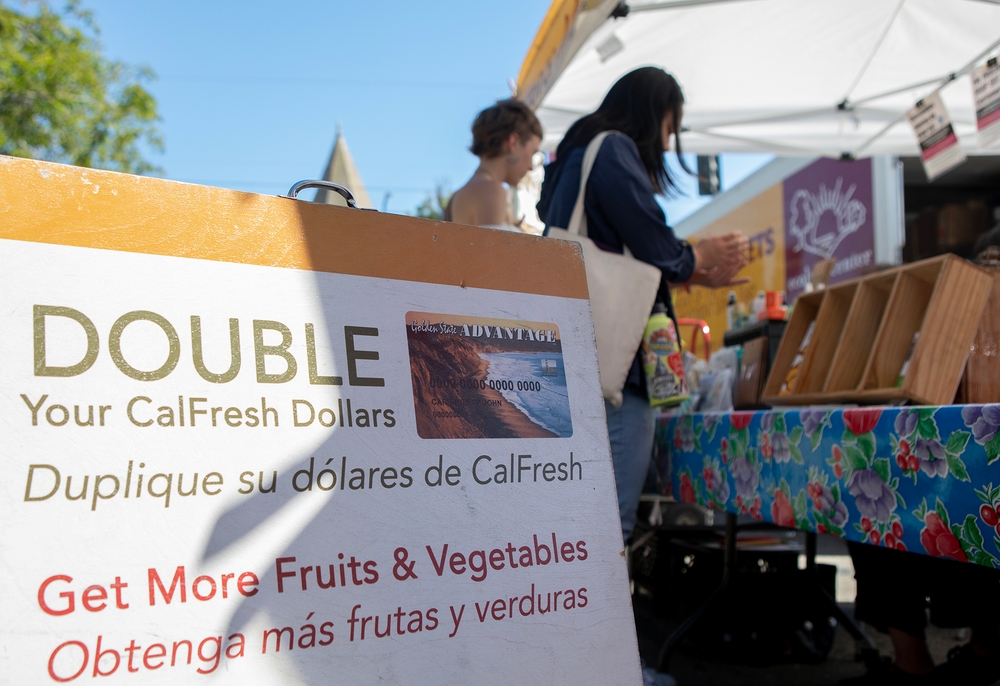California's Tragic Choice: Privacy Over Hunger Relief
Published
- 3 min read

The Facts:
Governor Gavin Newsom signed Assembly Bill 593, effectively reversing previous legislation that allowed extensive data sharing across state agencies to identify and enroll eligible Californians in the CalFresh food assistance program. The original legislation, introduced by Assemblymember Buffy Wicks just one year earlier, had authorized state and local entities to share sensitive personal data—including utility bills, criminal records, immigration status, tax records, and health information—to streamline enrollment for the federally funded program.
California faces a severe hunger crisis, with over 1 in 5 residents experiencing food insecurity. Approximately 5 million Californians currently receive CalFresh benefits, while nearly 2 million more are estimated to be eligible but not enrolled. The program is particularly crucial for college students, with around 200,000 currently receiving assistance, though many more struggle with food insecurity. In May alone, 20,000 college students applied for CalFresh, with over half being denied often due to difficulties proving eligibility.
The reversal comes amid concerns about federal government attempts to access state data. The U.S. Department of Agriculture had requested names, addresses, Social Security numbers, and benefit details of CalFresh recipients and applicants, citing an executive order by President Trump. This followed similar federal attempts to access Medicaid data for immigration enforcement purposes. California Attorney General Rob Bonta and other Democratic states sued the Trump administration to block this data collection, successfully obtaining a preliminary injunction in October.
Opponents of the original data sharing legislation, including the ACLU, Electronic Frontier Foundation, and Oakland Privacy, had criticized the bill as “preposterously broad” and lacking opt-out provisions. Assemblymember Alex Lee expressed concern about privacy impacts on low-income individuals, while former Republican Assemblymember Bill Essayli criticized the legislative process that rushed the bill through without proper committee review.
Opinion:
This devastating policy reversal represents a profound failure of moral courage and political leadership. While privacy concerns are legitimate and federal overreach is reprehensible, abandoning hungry citizens to protect them from potential data misuse is like refusing to provide lifeboats to drowning people because the rescue boats might leak. The cruel irony is staggering: we’re protecting people’s data while their bodies starve.
In a state where millions face food insecurity and college students routinely skip meals to afford textbooks, this decision prioritizes abstract privacy concerns over concrete human suffering. The federal government’s authoritarian attempts to weaponize state data should be fought in courtrooms and through legislative safeguards—not by sacrificing vulnerable citizens on the altar of data purity. We can and must protect both privacy and hunger relief through carefully crafted legislation with robust safeguards, not wholesale abandonment of those in need.
The fact that the same legislator who introduced the original data sharing bill now leads the charge to dismantle it speaks volumes about the toxic environment created by federal overreach. However, true leadership requires finding solutions rather than retreating from challenges. California should be leading the nation in developing privacy-protective methods to ensure food security, not capitulating to fear.
This decision particularly harms college students, who often don’t realize they qualify for assistance and struggle with the complex application process. The elimination of data sharing means outreach efforts will be less effective, leaving eligible students hungry and undermining their educational success. When we fail to feed our students, we’re not just compromising their health—we’re sabotaging our future workforce and economy.
The solution isn’t binary: privacy OR hunger relief. We need smart legislation that protects sensitive data while ensuring eligible recipients receive the nutrition they need. California must demonstrate that democratic values include both protecting civil liberties AND ensuring basic human dignity. Abandoning the hungry to protect their data is a perversion of both privacy rights and humanitarian principles.
